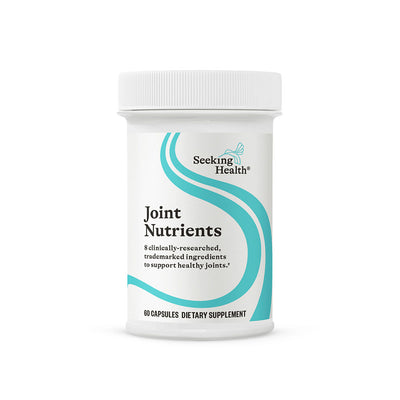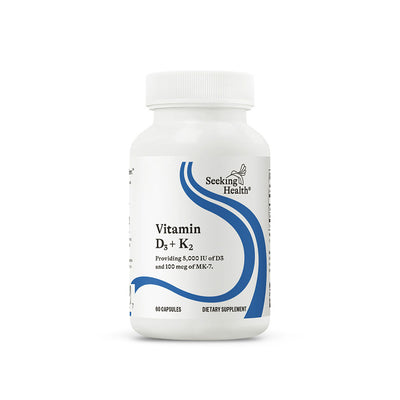TL;DR: Timing for taking probiotics may not be as crucial as consistency. Probiotics support gut health, especially if taken regularly, with some strains benefitting from specific timing.† Various fermented foods provide natural probiotics, while prebiotic-rich foods fuel these beneficial bacteria.
Main Points:
- Importance of Probiotics: Essential for immune and gut health, especially after antibiotic use.†
- Timing of Probiotics: Consistency matters more than exact timing; some strains prefer specific times.
- Probiotic Sources: Found in supplements and fermented foods like yogurt, kombucha, and kimchi.
- Prebiotic Foods: Whole grains, fruits, and veggies fuel probiotics for optimal gut health.
The majority of your body’s immune system resides in your gut. Your gut bacteria’s role is to help moderate it. If you find yourself with a microbiome imbalance due to antibiotic medication or for other reasons, probiotics can help. In fact, for many individuals, ingesting these live organisms is key to maintaining optimal overall health.†
However, some experts believe that precisely when you eat probiotics matters. Should you take probiotics in the morning? Before bed? All day long? And how much does consistency matter?
In this guide, we’ll explore whether or not there is a best time to eat probiotics to maintain overall wellness levels. Continue reading to learn more about timing your probiotics and supporting your gut microbiome.†
What are Probiotics?
Probiotics are carefully researched and curated strains of lab-cultivated bacteria and yeasts. They can be found in dedicated supplements, but you can also ingest them through your diet. For example, many fermented foods, such as some yogurts and kombucha, contain probiotics.
These “good” bacteria and yeasts should occur naturally in your body. When you take or eat probiotics, you add to the colony of healthy organisms living and working there.
You might not have enough beneficial bacteria if you’ve taken antibiotic medication. A diet high in sugar and saturated fats can also impact the strength of your gut microbiome. Even alcohol has a negative impact on the health of beneficial yeasts and bacteria in the gut.
Accidental chemical ingestion, such as via pollution, can play a role in depleting good bacteria, too.
Eating or supplementing certain probiotics is one way to maintain equilibrium in the gut. It can even support the immune system and help you maintain optimal health.†
When Is the Best Time to Eat Probiotics?

We’re often asked when to eat probiotics to ensure they integrate into the microbiome. The answer is that it varies. Remember, probiotics contain different strains of live microorganisms. Different strains require different conditions to grow and thrive.
For example, experts suggest that Bifidobacterium should be taken 30 minutes before eating. The same is true of Lactobacillus, another gut-friendly bacteria. However, Saccharomyces boulardii, a beneficial yeast, seems to thrive with or without food in the system.
However, introducing living organisms to a microbiome is a complex process. Every body, and every microbiome, is unique. As a result, there are few conclusive and definitive studies about the best time to eat probiotics.
In fact, some studies found that consistency mattered more than timing when it came to supporting gut health. No matter when you eat probiotics, you’re likely to see your healthy gut bacteria supported over time.†
Essentially, the best time to eat probiotic yogurt depends on when you like to enjoy your yogurt. A breakfast parfait is just as beneficial as an afternoon nosh as long as you’re consistent.
Likewise, the best time to eat probiotic capsules is whenever you can consistently remember to take them. Many choose first thing in the morning or right before bed. Some people do experience mild symptoms such as bloating while taking probiotics. Thus, you may find it more comfortable to take them before bed.
What Foods Contain Probiotics?

Many people take probiotics via over-the-counter supplements. These tend to provide the highest, most consistent concentration of probiotics.† However, it’s possible to maintain a healthy gut microbiome through diet.
Many foods contain smaller concentrations of healthy live microorganisms that can help add probiotics to your GI tract.
Most fermented foods contain probiotics. Ideally, look for foods that contain live and active cultures. Sometimes, natural probiotics are destroyed during processing. Thus, without that label, you may not be getting the full benefit.
Foods that may contain probiotics include:
- Probiotic yogurt
- Probiotic kefir
- Kombucha
- Kimchi
- Sauerkraut
- Pickled vegetables
- Cottage cheese
- Miso
- Tempeh
Be aware that some people may have a negative response to Lactobacillus, the probiotic found in yogurts. It may cause your body to produce histamines. Those with histamine sensitivities can experience symptoms ranging from headaches to heart palpitations. For some, these symptoms may negate the benefits of taking a probiotic.
Instead, consider ingesting a source of Bifidobacterium. Like Lactobacillus, research has found that it’s beneficial for most healthy individuals.†
The Best Foods to Eat When Taking Probiotics
Along with probiotics, professionals often discuss prebiotics. Since probiotics contain living organisms, they also need to eat to survive. By consuming certain plant fibers, you can ensure your gut microbiome has the fuel it needs.
Your body cannot digest prebiotic fiber on its own. The role of your microbiome is to metabolize and ferment them for its own use. Ingesting prebiotics along with probiotics can support nutrient absorption, digestion, and immune response.†
Luckily, prebiotics are found in many foods, including:
- Whole grains
- Avocados
- Onions, leeks, and garlic
- Soybeans and soy products, such as tofu
- Apples and bananas
- Artichokes
- Jicama
- Seaweed
- Cocoa
- Flax seeds
Those who consume a balanced, healthy diet rich in plant-based foods should not struggle to consume the prebiotics they need.
Consider adding some cocoa powder and bananas to your probiotic yogurt for a sweet and beneficial treat. Likewise, a salad topped with quinoa, avocado, and flavorful leeks can provide the fuel your gut microbiome needs.

† These statements have not been evaluated by the Food and Drug Administration (FDA). This product is not intended to diagnose, treat, cure, or prevent any disease.












